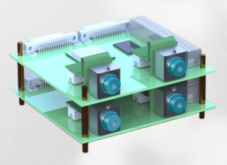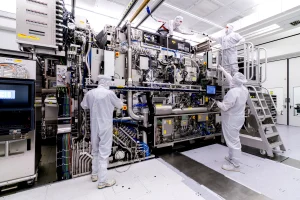In Salient, the Glasgow-based Craft Prospect will be using its on-board processing algorithms in a data processing module to perform autonomous detection and decision making for spacecraft operations. These will be based on image data provided by XCAM’s Nuscis system.
For this, Nuscis will drive two CMOS image sensors to provide real time information to be used in beam steering for optical communications, pointing of high-resolution cameras or for onboard removal of cloud obscured data.
The work is funded by the UK Space Agency’s Centre for Earth Observation Instrumentation (CEOI). The project will complete in a laboratory demonstration using simulations and deliverable hardware.
“We’re really excited to be working in close partnership with Craft Prospect on the supply of an engineering model for the development of their context imager,” said Karen Holland, CEO of XCAM. “We expect that our stereo CMOS Nuscis system will support a wide range of monitoring applications from satellites.”
For its part, Craft Prospect highlighted the importance of autonomy in satellite missions:
“Our first-generation FLI (Forward Looking Imager) has been a critical technology in unlocking autonomous capabilities in satellite missions,” said Murray Ireland, Head of Products at Craft Prospect Ltd. “With our next generation development, we can utilise the Nuscis module’s superior image quality and the latest advancements in embedded AI systems to deliver a context sensor which is far more powerful, configurable and versatile.”
Nuscis
For XCAM, this is the third variant of the Nuscis system after the initial contract to develop WindCube was awarded by UCAR (University Corporation for Atmospheric Research) last year.
For WindCube, XCAM is providing the core Nusics processor, memory and control board, an auxiliary drive board for CCDs and a temperature control board. Here, the core Interface Control Board will be used to drive the CMOS image sensors directly.
Note that in addition to these two variants – for Salient and WindCibe – there is also XCAM’s own CEOI (Centre for Earth Observation Instrumentation)-funded development of an ultra-low-light camera system for low Earth orbit missions.
See also: Video: UK excellence in the Space industry – XCAM, specialist digital imaging
 Electronics Weekly Electronics Design & Components Tech News
Electronics Weekly Electronics Design & Components Tech News




